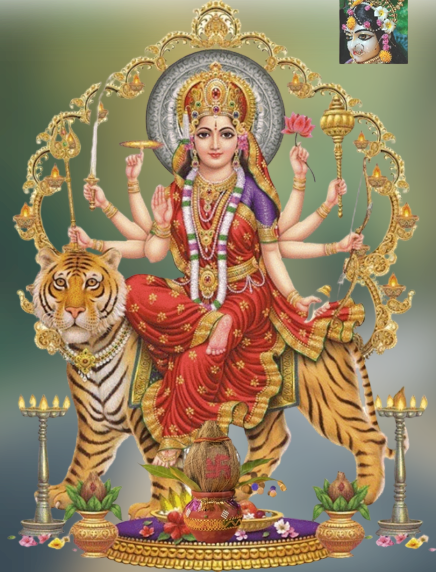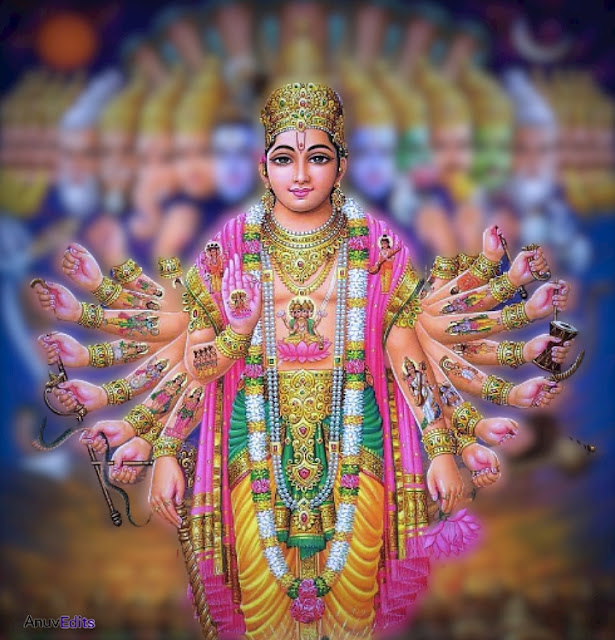Ekadashi: A Guide to the Sacred Fasting Day

In Hinduism, Ekadashi is considered to be one of the most sacred days of the month. It is the eleventh day of both the waxing and waning lunar phases, and it is believed that on this day, the power of the moon and the sun is at its peak. On Ekadashi, devotees observe a strict fast and engage in prayers, meditation, and other spiritual activities to seek the blessings of Lord Vishnu.
Origins of Ekadashi
The origins of Ekadashi can be traced back to ancient Hindu scriptures such as the Puranas and the Mahabharata. According to these texts, Ekadashi is a day of great significance as it is believed that on this day, Lord Vishnu took rest after slaying the demon Muran. Another legend associated with Ekadashi is that it is the day when Lord Vishnu appeared in his avatar as Mohini and distributed the amrita, or the nectar of immortality, to the Devas.
Significance of Ekadashi
Ekadashi is considered to be a highly auspicious day in the Hindu calendar. It is believed that observing a fast on this day can help one attain spiritual purification, as well as material and worldly benefits. It is said that fasting on Ekadashi can help one purify their mind, body, and soul, and help them overcome negative karma and attain the blessings of Lord Vishnu.
Types of Ekadashi
There are two types of Ekadashi – the Shukla Paksha Ekadashi and the Krishna Paksha Ekadashi. The Shukla Paksha Ekadashi falls on the eleventh day of the waxing lunar phase, while the Krishna Paksha Ekadashi falls on the eleventh day of the waning lunar phase. Each of these Ekadashi has a specific name and is associated with different legends and rituals.
Some of the popular Ekadashi vratas are:
Nirjala Ekadashi – This is one of the toughest Ekadashis as it requires devotees to observe a complete waterless fast. It falls on the eleventh day of the waxing phase of the moon in the Hindu month of Jyeshtha.
Vaikuntha Ekadashi – This is considered to be the most important Ekadashi. It falls on the eleventh day of the waxing lunar phase in the Hindu month of Margashirsha. It is believed that observing a fast on this day can help one attain moksha or liberation.
Devshayani Ekadashi – This Ekadashi falls on the eleventh day of the waxing lunar phase in the Hindu month of Ashadha. It is also known as Ashadhi Ekadashi and is considered to be the beginning of the Chaturmas period, which is a four-month period of spiritual growth and austerity.
Rituals and Traditions
On Ekadashi, devotees wake up early in the morning and take a bath before beginning their fast. They then offer prayers to Lord Vishnu and recite mantras and hymns to seek his blessings. Some devotees also observe a complete fast and abstain from consuming food and water throughout the day. Others observe a partial fast and consume only fruits, milk, and other light food items.
Devotees also visit temples dedicated to Lord Vishnu and offer special prayers and offerings on this day. They may also participate in satsangs, bhajans, and other spiritual activities.
Conclusion
In conclusion, Ekadashi is a highly significant day in Hinduism. It is than just a day of fasting and abstinence, Ekadashi is a day of spiritual significance that helps devotees to purify their mind, body, and soul, and attain the blessings of Lord Vishnu. Observing Ekadashi vratas is believed to help one overcome negative karma, attain worldly and material benefits, and progress on the path of spiritual growth.
While the rituals and traditions associated with Ekadashi may vary from region to region and from community to community, the underlying principles remain the same – devotion, purity, and spiritual progress. By observing Ekadashi with devotion and sincerity, one can deepen their connection with the divine and experience the inner peace and joy that comes from spiritual growth.
As we continue to navigate the challenges of modern life, the significance of Ekadashi has only grown in importance. In a world that is increasingly busy and stressful, taking a day to pause, reflect, and reconnect with the divine can be a source of solace and strength. So, whether you are a devout Hindu or simply someone looking to deepen your spiritual practice, Ekadashi can be a powerful tool for growth and transformation.
In addition to the spiritual significance, Ekadashi is also associated with various health benefits. Fasting on Ekadashi is believed to help detoxify the body, boost immunity, and promote overall well-being. By abstaining from food and drink for a day, the body is able to rest and recharge, allowing it to better handle the stresses and strains of daily life.
Furthermore, Ekadashi is also an opportunity for devotees to practice self-discipline and control over their desires. By abstaining from food and drink, one learns to manage their cravings and desires, which can be applied to other areas of life as well. This can help cultivate a sense of inner strength and resilience that is invaluable in today's fast-paced world.
In recent years, there has also been a growing interest in Ekadashi outside of India. With the rise of yoga and Ayurveda, many people around the world are discovering the benefits of this ancient practice and incorporating it into their own spiritual and wellness routines.
Whether you are a devout Hindu or simply someone looking to deepen your spiritual practice or improve your health, Ekadashi is a powerful and meaningful day to observe. By taking a day to fast, pray, and reflect, we can cultivate a deeper connection with the divine, purify our mind, body, and soul, and experience the transformative power of spiritual growth.
Do's and don'ts
There are certain do's and don'ts that devotees should keep in mind while observing this day of spiritual significance. Here are some of the most common ones:
Do's:
1. Observe a fast: The most important aspect of Ekadashi is fasting. Devotees are expected to refrain from eating grains, beans, and other prohibited food items for the entire day. Some may also choose to abstain from water, depending on their level of observance.
2. Worship Lord Vishnu: Ekadashi is dedicated to Lord Vishnu, and it is important to offer prayers and perform puja to him on this day. You can also read the Vishnu Sahasranama or other holy texts dedicated to him.
3. Meditate and reflect: Use the day to meditate and reflect on your spiritual journey. This is a great opportunity to connect with the divine and deepen your understanding of yourself and your place in the world.
4. Practice acts of charity: Giving alms to the needy and performing acts of charity are considered auspicious on Ekadashi. This is a great opportunity to practice compassion and generosity towards others.
Don'ts:
1. Avoid non-vegetarian food: Non-vegetarian food is strictly prohibited on Ekadashi. Devotees are expected to refrain from consuming meat, fish, and eggs on this day.
2. Avoid alcohol and tobacco: The use of alcohol and tobacco is also prohibited on Ekadashi. These substances are believed to be impure and harmful to the body and mind.
3. Avoid sleeping during the day: It is believed that sleeping during the day on Ekadashi is not auspicious. Devotees are encouraged to stay awake and engaged in spiritual practices throughout the day.
4. Avoid engaging in negative activities: Engaging in negative activities such as gossiping, lying, or stealing is not considered auspicious on Ekadashi. Devotees are encouraged to practice self-discipline and avoid any actions that may harm themselves or others.
Ultimately, the observance of Ekadashi is an invitation to go deeper within ourselves, connect with our true nature, and experience the infinite love and grace of the divine.







🙏
ReplyDeleteAmazing
ReplyDelete